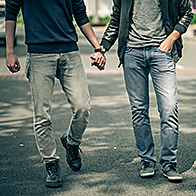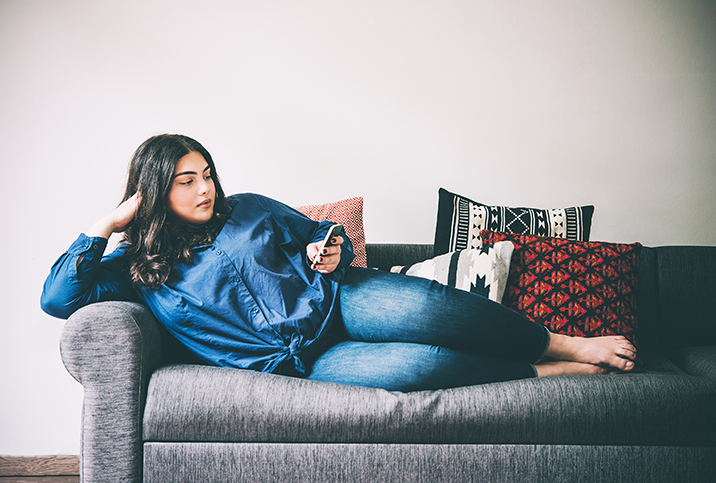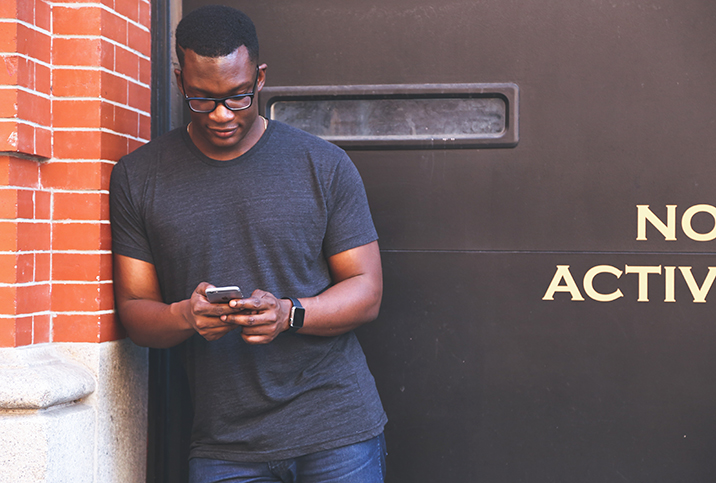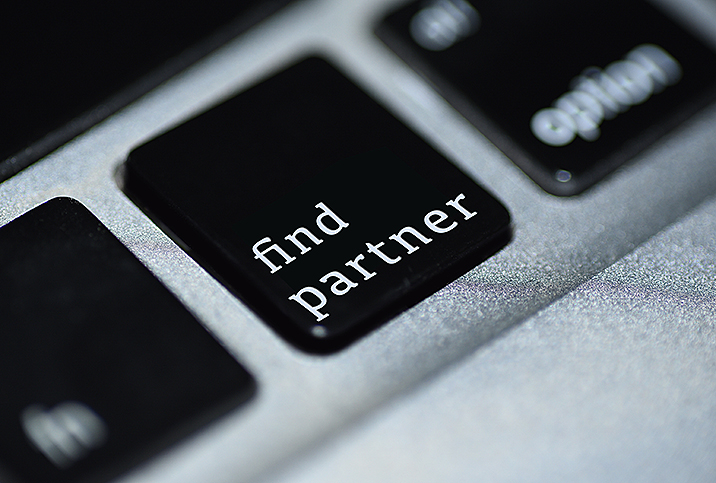Dating Apps Can Be a Sexually Risky Business

These days, when you ask your friends where they meet new people to date, they usually toss out the name of a dating app: Tinder, Bumble, Hinge, Match and so on. There's no longer a stigma around online dating. In fact, it's now a booming industry in the United States worth almost $1.5 billion, with a market penetration of 18.4 percent. Mix in two years of the pandemic, and online dating has gained even more popularity.
Despite becoming mainstream, it's not yet fully understood just how dating apps influence the way we approach relationships and sex. While past research has been inconclusive, a 2021 study published in Sexual Medicine by Luca Flesia, Psy.D., and colleagues involving more than 1,200 Italian respondents indicated that using a dating app could be a potential risk factor for sexual health.
More specifically, people who used dating apps were more likely to have unprotected sex and contract sexually transmitted infections (STIs) than people who found partners in other ways. Users were more likely to have sex on the first date, too, and the riskiest group of all were people who installed the apps to specifically look for hookups and used the service frequently.
Things can get sexual quickly
It's not like you change as a person if you meet a new partner online or offline, but apparently, something unique about dating apps can lead to more sexually risky behaviors.
"Relationships that start online tend to become sexual quickly," said Marie Bergström, a French sociologist specializing in online dating and author of "The New Laws of Love." "It's much more common to have sex on the first date when you meet online compared to any other setting. It has to do with, first, the privatization of dating and, secondly, the clear purpose when using a dating app. There's no ambiguity [as to] why you meet someone. If things go well, there are not many obstacles to taking it to the next level. You can accelerate the relationship."
'It's much more common to have sex on the first date when you meet online compared to any other setting.'
According to Bergström, there's a huge change in context when using dating apps, such as the "privatization of dating" she mentioned: You meet people you don't know at all. You don't have to see them ever again if you don't want to. Your friends don't need to know if you have a date. Nobody knows if you have sex on a first date. All this could cause behavioral differences between dating app users and people who get dates from bars, parties, work or school.
"If you meet someone offline, there's a social setting that you need to take into account," Bergström said. "It can take time and effort to read a situation correctly and turn it into something sexual."
Meanwhile, online dating allows you to avoid such social consequences, especially if you're single. Sex can just happen, and sometimes it can happen so quickly you may be unprepared to use safer sex methods.
Bring sex to the forefront
Another reason dating app users may think less about contraception or avoid discussions of sexual health upfront is because the issue is hardly front and center on the apps themselves.
Dating apps are marketed as "social networking" and "relationship" apps, not "hookup" apps. To a great extent, they want to disassociate themselves from sex and STIs. It was reported for years that big players like Tinder didn't do enough to help raise awareness about STIs and often avoided health officials and advocacy groups.
"One of the goals we have is to partner with dating apps," said Georgia Di Mattos, the co-founder of iPlaySafe, a sexual wellness app that allows you to discreetly order at-home STI tests and share the results with other users. "But it's very difficult to get them on board. Dating apps have always been associated with bad press linking them to spreading diseases and just being used for hookups. So working with iPlaySafe would be a perfectly good solution for them to get good press. Simply allow users to express their sexual health status if they want. Why not do it?"
Di Mattos and her team even surveyed dating app users and found they did indeed want a sexual health feature.
Of course, not all dating apps are the same. LGBTQIA+ dating apps, for example, are leading the way in helping to fight sexual diseases. Grindr has long enabled its users to disclose, if they want, their HIV status with their last tested date and whether they are on PrEP, a medication that prevents HIV transmission.
BlueCity, the parent company of Blued, a China-based LGBTQIA+ dating app with more than 60 million registered users worldwide, offers telehealth consultation and pharmacy services including delivering HIV prevention drugs. Its service raises questions about the nature of heterosexual dating and the barrier it creates toward being open about sexual health.
"There's this idea that the terms of dating and gender norms in dating have changed thanks to online dating," Bergström explained, referencing her own research. "But in reality, they're still very strong."
When Bergström did data analysis on users of the same platform in different countries, she saw some variations—for example, Swedish women take the initiative more than French and Italian women—but the norms of male initiative and female modesty were still largely there. Even for Swedish women who took a leading role, the most common way to act was to wait for the man to send the first message.
After all, it's not necessarily a positive experience for heterosexual women to make the first move or engage in sex straight away. They have to face the risks of damaged reputation and, worse, sexual violence. When heterosexual women hold back about sex, it's a way to stay in control of the interaction and be able to say no later.
"It's risk management," Bergström said.
She added that heterosexual dating norms, to a large extent, are implicit, regardless of gender. Things are supposed to happen without being talked about. Ultimately, it's difficult for heterosexual daters to have straightforward conversations about sex if dating apps don't bring sex to the forefront.
Prepare and protect
How do you protect yourself when using dating apps?
The discoveries from the 2021 Flesia study listed being intentional when looking for a new partner, educating yourself about sexual diseases and avoiding excessive use of dating apps as suggestions that could help.
James Thomas, a United Kingdom-based sex and relationships expert at condoms.uk, offered some other practical tips.
"When it looks like things might be about to hot up, it's worth asking your partner when they were last tested for STIs or if they have any known STIs," Thomas said. "Though don't just get down to it if the answer comes back, 'I'm all clear'—some proper due diligence and extra precautions are still required."
For example, you can use apps, such as the aforementioned iPlaySafe, to exchange STI status. Plus, it's useful to keep a condom in your bag, wallet or drawer to stay prepared for spontaneous sexy moments.
"Remember, sexual health is a serious topic," Thomas added. "If your new partner cannot speak openly or honestly about STIs or sexual health, it's a red flag and you might need to completely reevaluate your relationship."




















